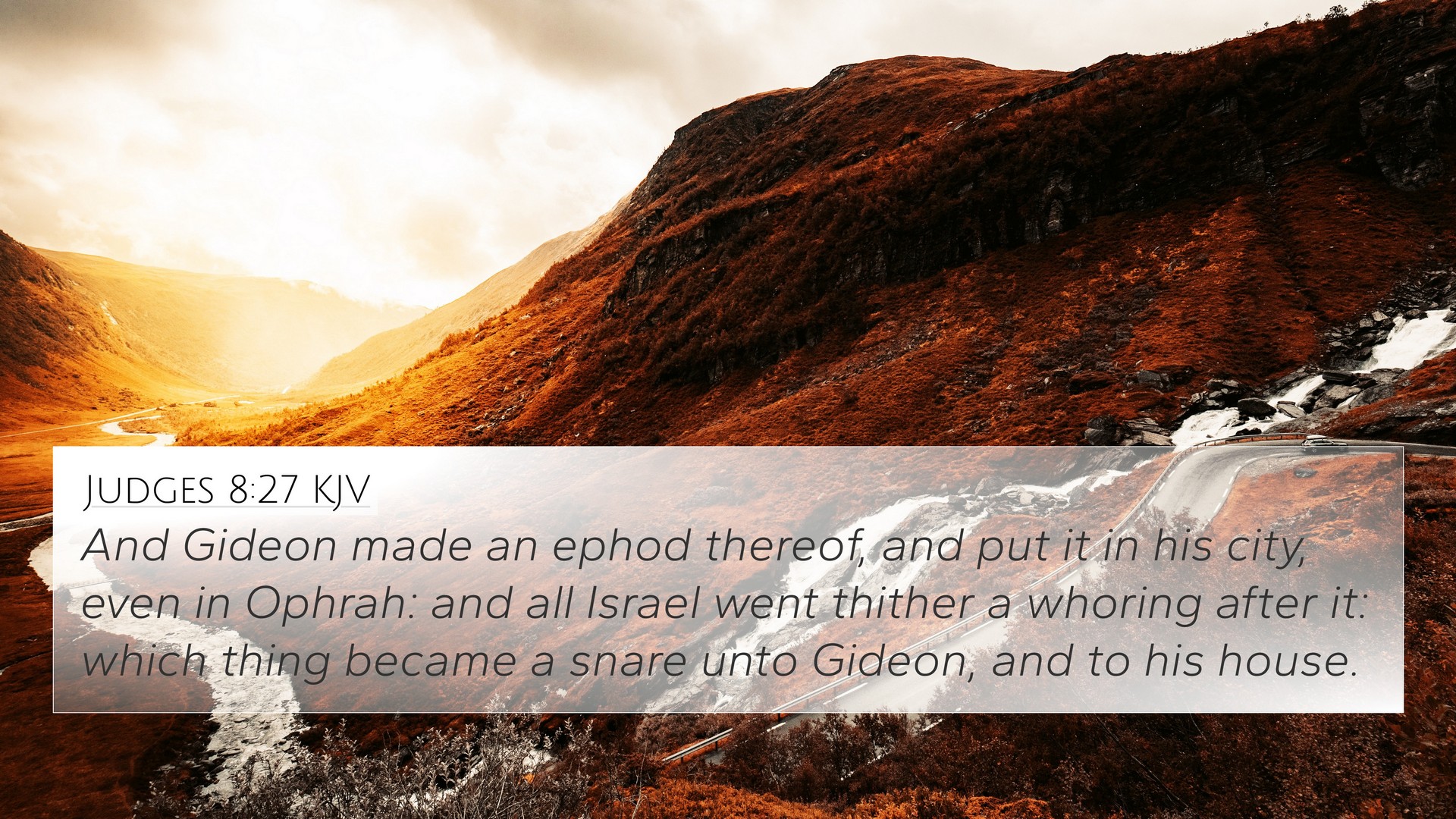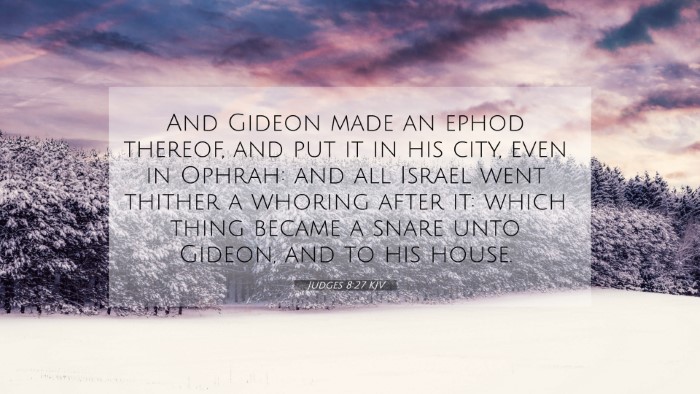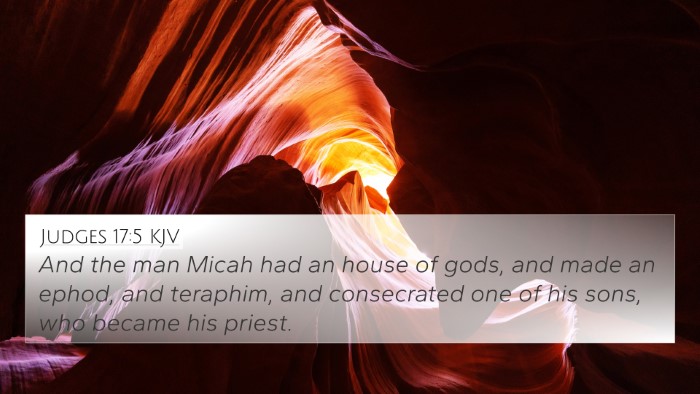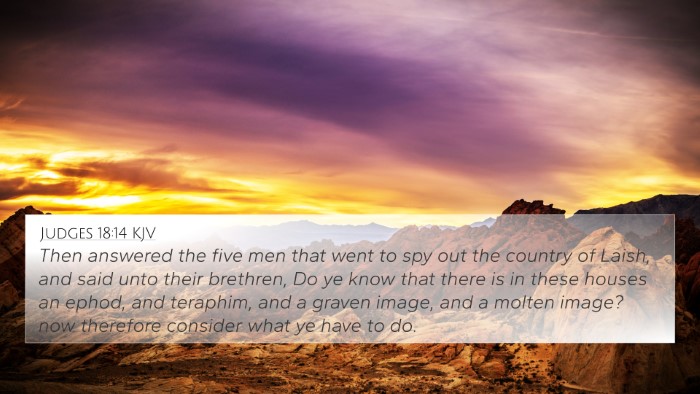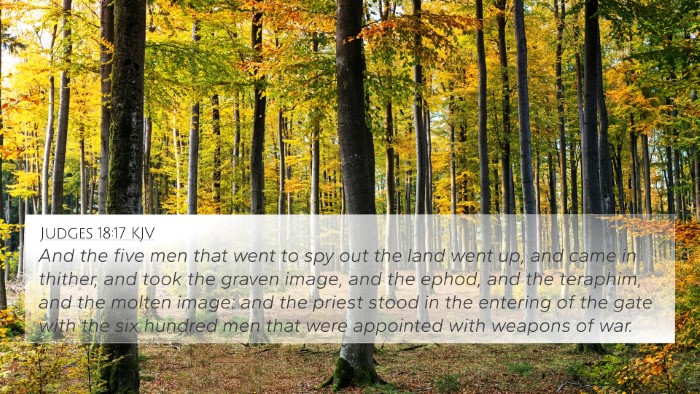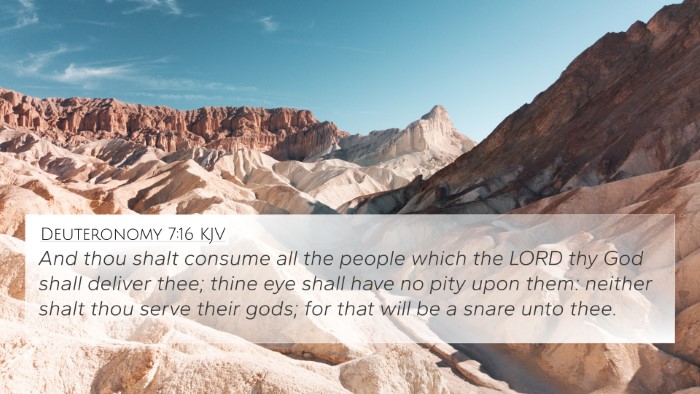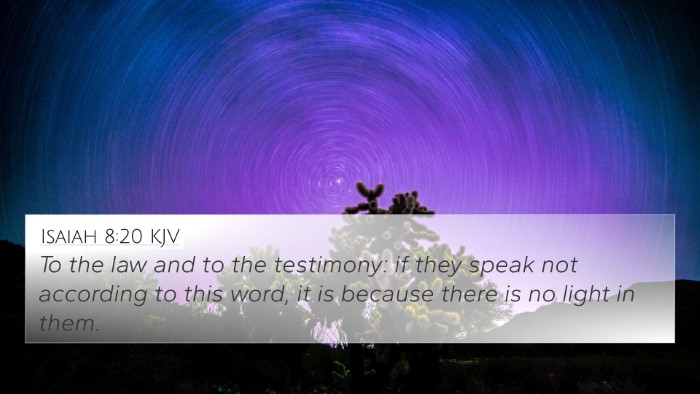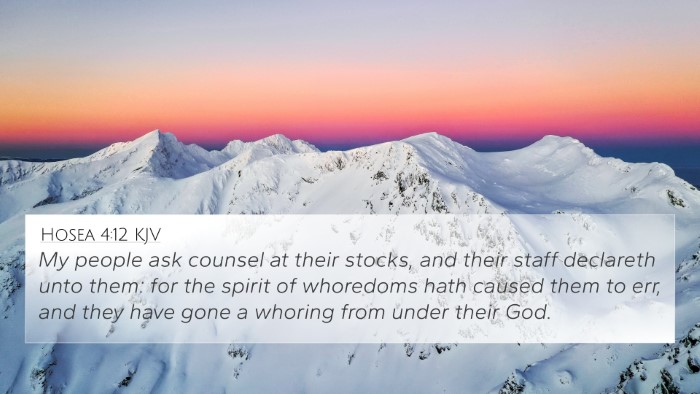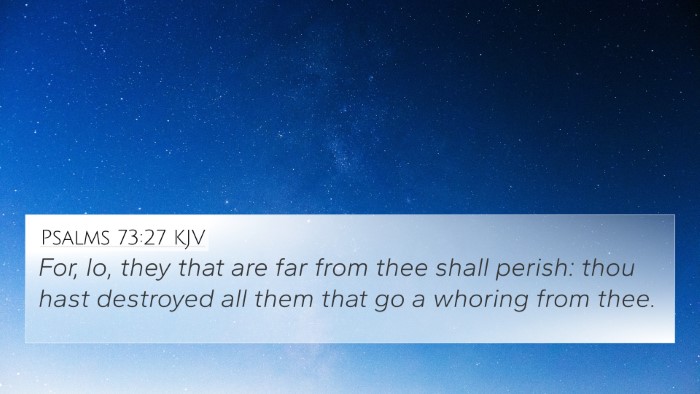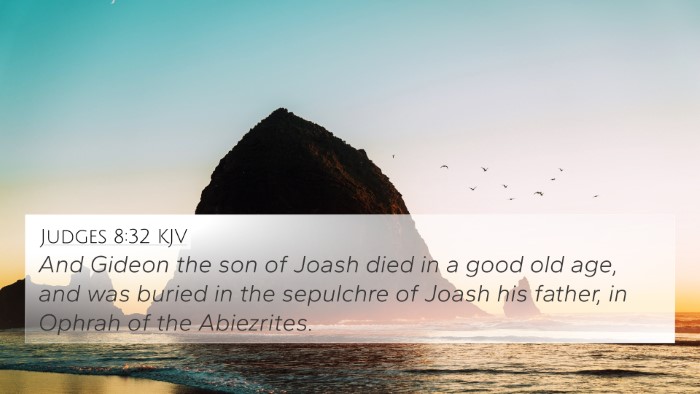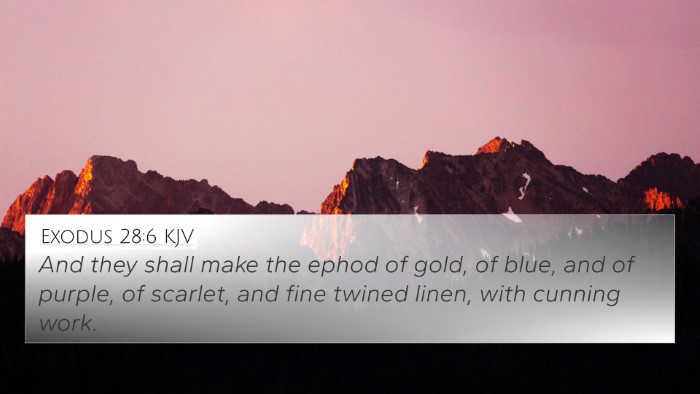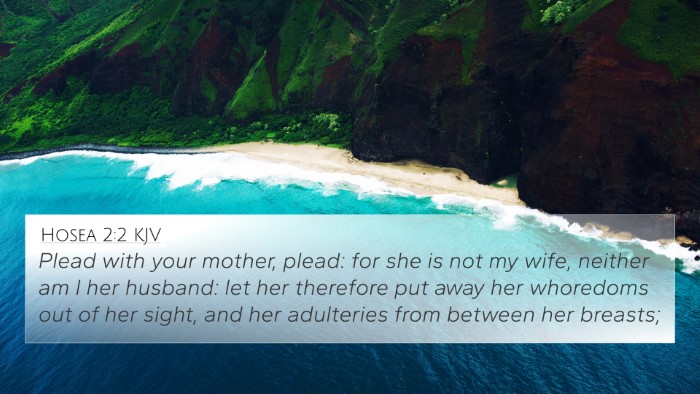Judges 8:27 Meaning and Interpretation
Judges 8:27 states, "And Gideon made an ephod and put it in his city, even in Ophrah: and all Israel went thither a whoring after it: which thing became a snare unto Gideon, and to his house." This verse presents a critical moment in the narrative of Gideon, revealing themes of idolatry, leadership, and the consequences of misplaced worship.
Summary of Interpretations from Public Domain Commentaries
-
Matthew Henry's Commentary:
Henry observes that Gideon, after his victory over the Midianites, created an ephod, a priestly garment, which was meant to be a symbol representing God. However, it led to idolatry as the Israelites began to worship it. This act demonstrates how a leader’s intentions, however noble, can have unforeseen consequences, leading the people away from true worship of God.
-
Albert Barnes' Notes:
Barnes emphasizes the irony in Gideon’s actions. Despite being chosen by God and leading Israel to victory, he struggled with the temptation of idolatry. The ephod, instead of bringing the people closer to God, became an object of worship itself, highlighting the dangers of relying on tangible representations of the divine.
-
Adam Clarke's Commentary:
Clarke points out that the ephod became a "snare" to Gideon and his family, indicating that the creation of religious symbols can lead to spiritual corruption. He notes that the people’s subsequent idolatry illustrates their vulnerability to worshipping created things rather than the Creator, a theme that resonates throughout Israel's history.
Thematic Connections:
Judges 8:27 explores several themes crucial to understanding Biblical narrative:
- Idolatry: The people of Israel turned to worship an object rather than God, resembling the sin of the golden calf (Exodus 32:1-6).
- Leadership and Influence: Gideon's choice reflects how leaders can lead their followers astray, echoing Moses' warnings in Deuteronomy 13:1-5.
- Consequences of Sin: The "snare" aspect aligns with the teachings found in Galatians 6:7, reminding us that we reap what we sow.
Cross-References:
- Exodus 20:4-5 – Prohibitions against making graven images.
- 1 Samuel 15:23 – Rebellion as witchcraft, highlighting the severity of disobedience.
- Jeremiah 2:13 – The forsaking of the fountain of living waters for broken cisterns.
- Romans 1:25 – Exchange of the truth of God for a lie.
- 2 Kings 17:16 – Israelites' idolatry leading to exile.
- John 4:24 – Importance of worshiping God in spirit and truth.
- 1 Corinthians 10:14 – Exhortation to flee from idolatry.
Conclusion and Reflection:
The events surrounding Judges 8:27 serve as important lessons regarding the nature of worship, the responsibilities of leadership, and the temptations of idolatry in our lives. Leaders, like Gideon, are cautioned to direct their focus on God rather than being sidetracked by their own creations or the desires of the people. This story encourages believers to engage in cross-referencing Biblical texts to understand the broader implications of idolatry and the call to genuine worship.
Further Study Suggestions:
Engaging with the themes of Gideon’s story through practical Bible cross-reference guides, readers can explore how Bible verses relate to each other. This analysis aids in drawing a comprehensive understanding of similar topics across both Old and New Testaments, thus enhancing personal Bible study and sermon preparation.
To effectively use Bible concordance and tools for Bible cross-referencing, one may begin by identifying key themes, exploring various translations, and gathering commentary insights. This can lead to a deeper appreciation of how scriptures interconnect and the overarching narratives that shape our understanding of faith.
